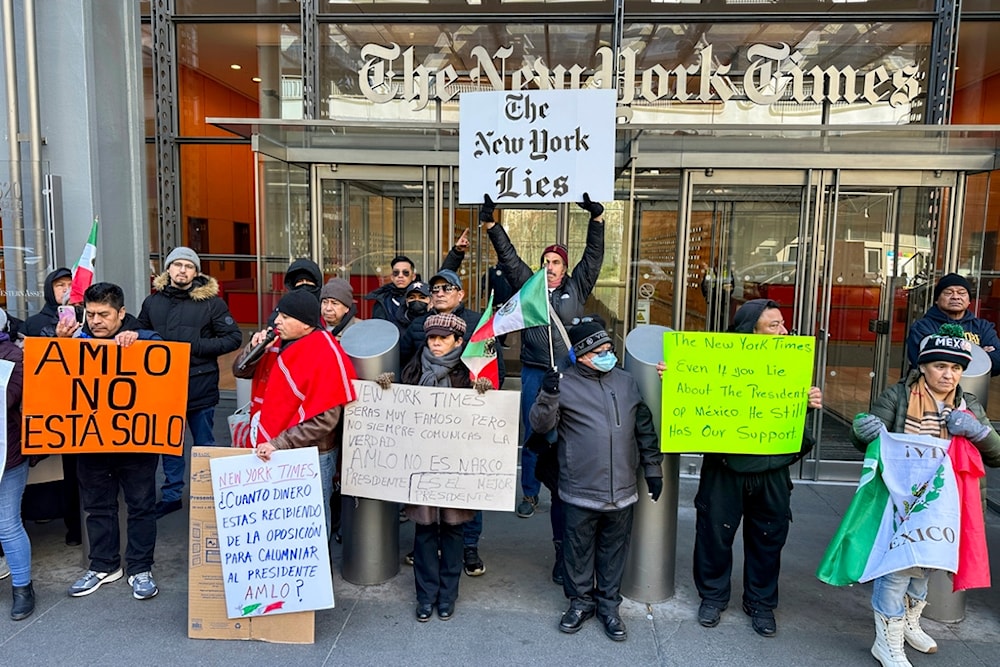Tensions erupt at NYT over debunk of Hamas sexual violence lies
Following the publication of The Intercept's report in January, conflicts within the newsroom have exposed deep divides in the coverage of the war on Gaza.
-

Supporters of Mexican president Andrés Manuel López Obrador protest in front of the New York Times headquarters in New York on Sunday, February 25, 2024 (AP)
Tensions have erupted within The New York Times following the publication of an investigative report detailing Hamas' alleged use of sexual violence during the October 7th operation.
Following the publication of The Intercept's report in January, conflicts within the newsroom have exposed deep divides in the coverage of the war on Gaza.
According to NPR, a notable divide has emerged between the traditional newsroom and the rising prominence of the paper's audio division.
The report further pointed to a stark contrast between the management and many rank-and-file employees.
Read more: Food blogger, Israeli film director scripted Hamas rape story for NYT
The Times Guild, representing nearly 1,500 journalists, lodged a formal grievance against the paper, saying The Times had violated the terms of its contract.
The union accused top news executives of subjecting journalists of Middle Eastern descent to "targeted interrogation" to uncover the source of leaked information about internal dissent to The Intercept.
The Times Guild sent a note to publisher AG Sulzberger today raising concerns about the leak hunt into @theintercept’s reporting pic.twitter.com/p6IYhFWKMI
— Max Tani (@maxwelltani) March 2, 2024
The Guild's announcement said its members "faced extensive questions about the involvement in [Middle Eastern North African employee group] events and discussions and about their views of the Times' Middle East coverage."
The paper, however, has denied these claims.
Read more: Factcheck: 'Israel' has no information on Hamas murdering babies
The publication of the investigative report has also sparked skepticism and debate among Times staffers.
Some have expressed doubts about the veracity of the anecdotes presented in the story, questioning whether they were fully substantiated. For instance, concerns were raised about the case of Gal Abdush, whose family was featured in a photograph accompanying the report.
While initially fearing she had been raped, her brother-in-law later retracted his statement to Israeli journalists, casting doubt on the narrative, but would not provide the Times with the material that he said changed his mind.

 2 Min Read
2 Min Read








